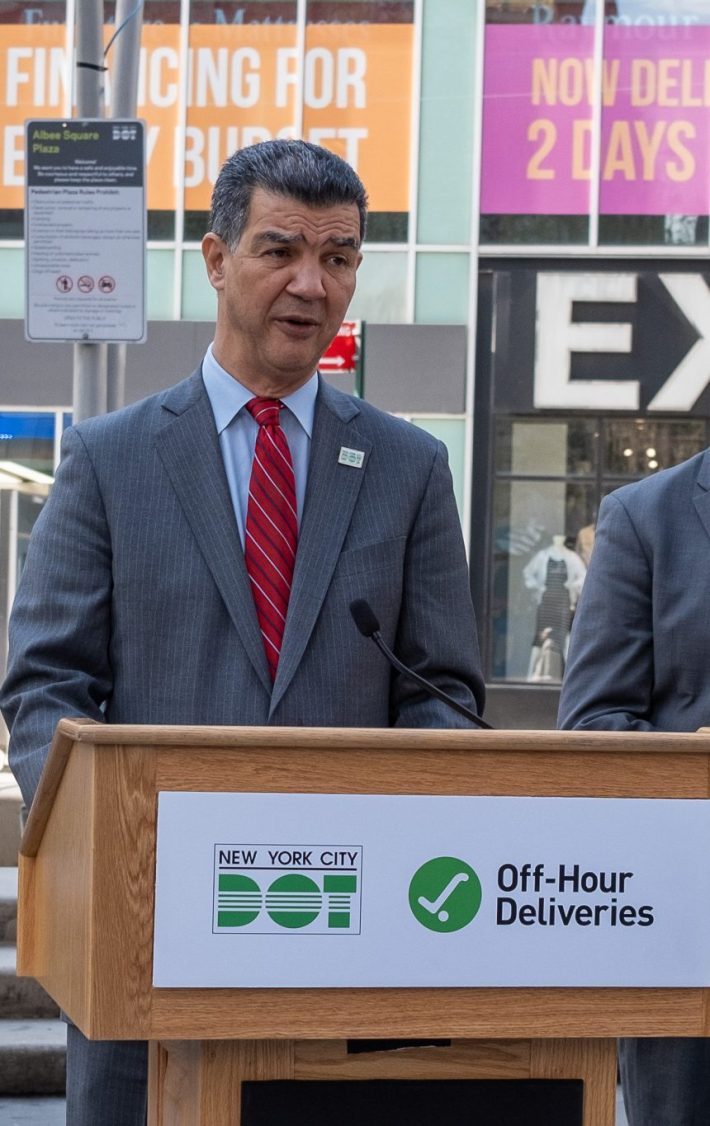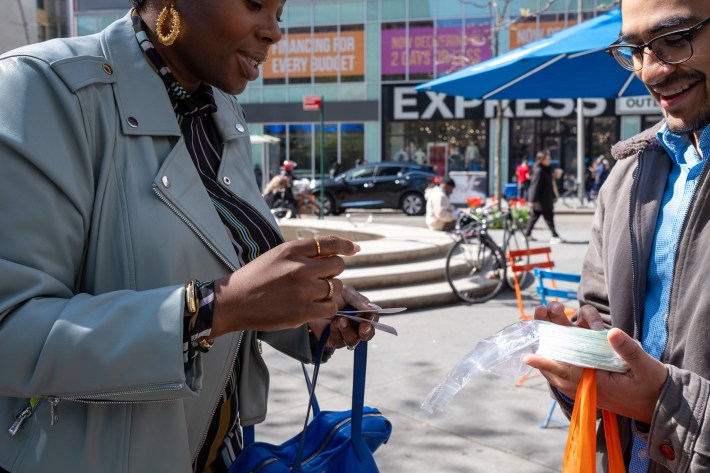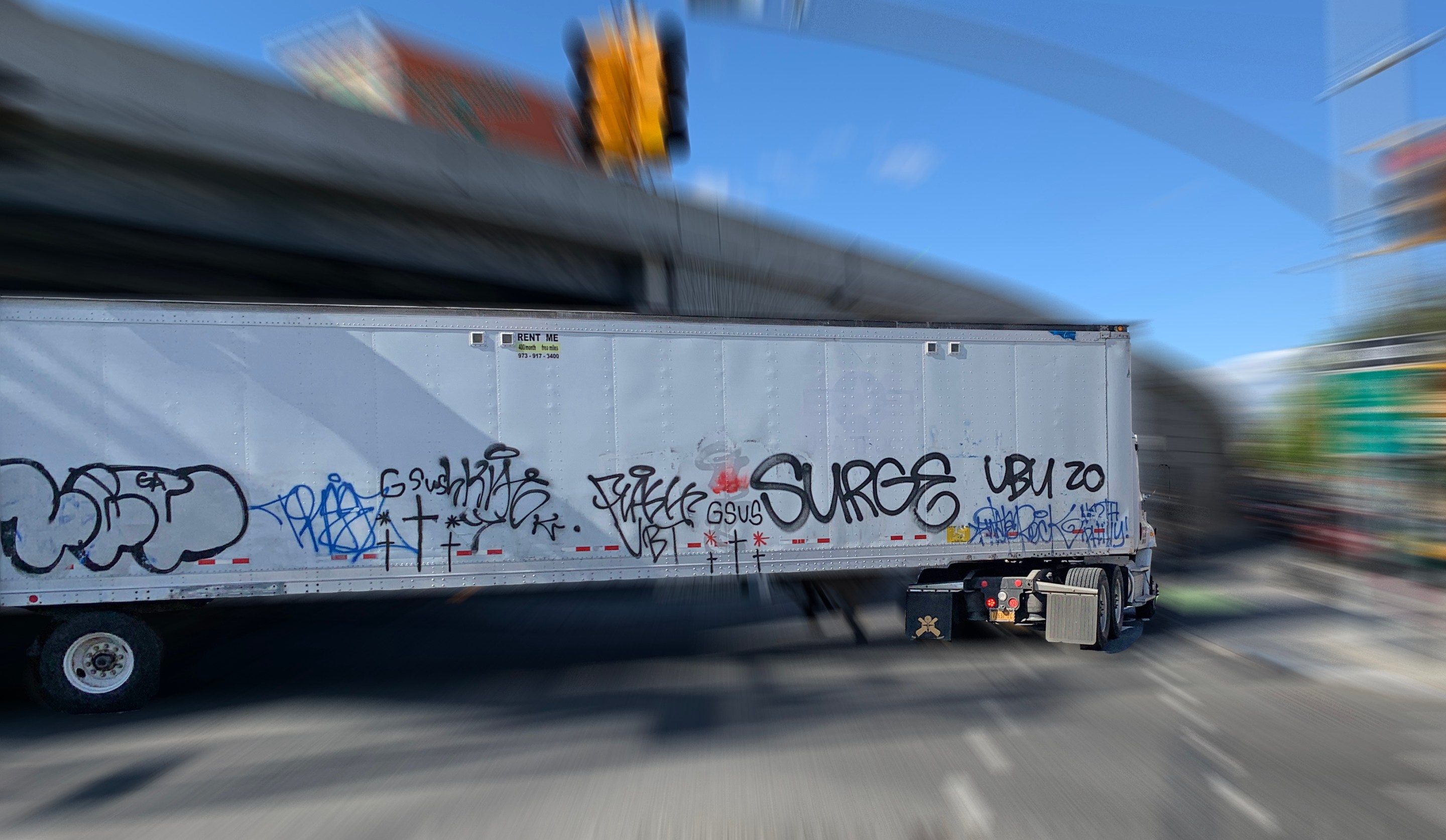The Department of Transportation will provide financial incentives to trucking companies and business to reduce peak-hour deliveries and the congestion and danger that comes with them — a longtime goal of safety advocates.
With the bustling roadways of Downtown Brooklyn's Albee Square shopping hub as a backdrop, Commissioner Ydanis Rodriguez announced that the agency would allocate $6 million from a federal air quality and congestion improvement program and another $5 million in anticipated funds from congestion pricing to upgrade trucks, add security at businesses to enable deliveries without staff, and install security cameras.
For small businesses, one of the biggest barriers to accepting deliveries overnight is having to pay after-hours staff. DOT hopes that the incentives will lessen the blow.
The money would go to business, though it is unclear how large the grants will be. But if successful, the DOT says it will add 5,000 off-hour delivery locations by 2040, up from 1,120 now, and shift 62,000 trucks away from peak hours.
"New Yorkers are receiving more deliveries than ever before,” Rodriguez said in a statement. “This incentive program will support local businesses and benefit all New Yorkers by reducing the number of delivery trucks on our roads during busy daytime hours.”

Around 90 percent of all goods enter or move around the city on trucks. This puts a strain on the limited street space, increases the likelihood of an injury-caused crash, and contributes to air pollution. The expanded program builds on something the agency started in 2010, when 27 businesses participated.
The magnitude of the problem is confounding: Around 120,000 trucks enter Manhattan and around 73,500 enter Brooklyn every day — but in some of the busiest parts of those boroughs, 80 percent of that truck traffic is moving around between 7 a.m. and 7 p.m., the most congested time of the New York day.
The number of deliveries is only growing, with the agency saying freight traffic is expected to increase by 68 percent by 2045, so shifting many of those trucks to off-peak deliveries is essential
“Embracing off-peak deliveries isn’t just about business – it’s about prioritizing safety, sustainability, and efficiency for all New Yorkers,” Manhattan Borough President Mark Levine said in a statement.

Rodriguez was joined on Wednesday by Zach Miller of the Trucking Association of New York and Tiffany-Ann Taylor of the Regional Plan Association, but no representatives of any small businesses. And that could be an issue; Miller said that smaller companies and businesses need the incentives the most because "larger chains [have] self-contained supply chains [so] it's easier to set off-hour delivery schedules."
Indeed, DOT said the existing off-hour delivery incentive program includes large stores such as Whole Foods, Just Salad and Wegmans.
"A lot of [the small companies] stopped," Miller said, but Rodriguez said he had "seen progress" since the program's earliest day when he was a Council member representing upper Manhattan.






